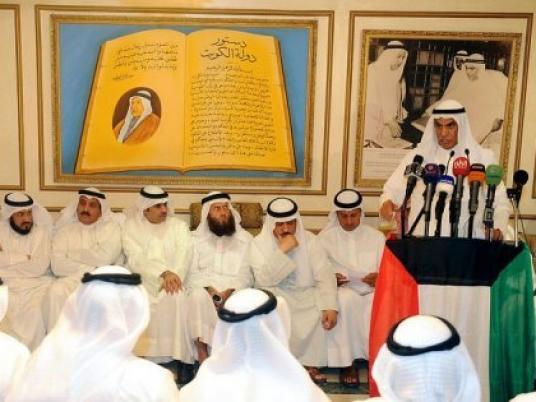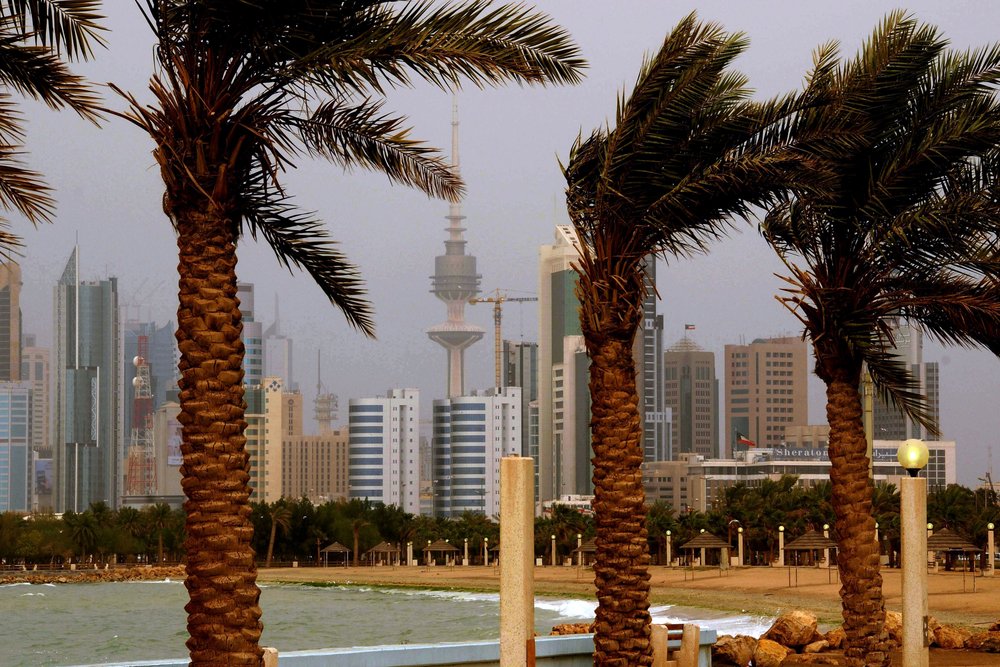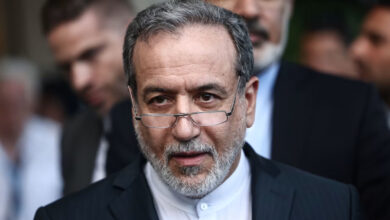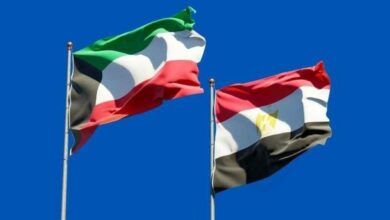
DUBAI – Kuwait risks sliding into Arab Spring-style protests over a forthcoming election that has polarized opinion in the Gulf Arab state and posed an unprecedented challenge to the authority of the once revered emir, a close Western ally.
Kuwait saw some of the worst violence in its recent history when tens of thousands of demonstrators – out of a native population of just 1.2 million – protested this week at changes to election laws they see as an attempt to limit the prospects for the opposition at the parliamentary vote on 1 December.
In clashes with security forces, at least 29 people were injured and at least 15 were detained.
The government and an opposition that includes Islamists, liberals and traditional tribal leaders have since dug in deeper into entrenched positions in the dispute, setting the stage for further confrontations in the run-up to the ballot.
The government has now banned gatherings of more than 20 people and given security forces authority to disperse any protests. More are planned, however – notably an event on Thursday near parliament where activists have invited people to break the religious fast on the eve of the Eid al-Adha holiday.
"I am afraid that confrontations may continue and then they will be forced to impose martial law that will lead to repression," Kuwaiti analyst Ayed al-Manna said. That, he said, would damage Kuwait's tradition of allowing greater popular involvement in public life than is common in the Gulf.
"It is in the interest of the regime to have popular participation in the election and not to have a weak parliament," Manna said.
The OPEC oil exporter has long been beset by political friction centered on a power struggle between the parliament and governments dominated by members of the ruling Al-Sabah family, who opponents say have resisted public accountability.
The rulers are firm allies of Western powers. Washington led an international force to oust occupying Iraqi troops from Kuwait in 1991, allow the Al-Sabah to return from a year-long exile and US troops remain stationed there.
Emir
The current crisis was sparked when the emir used his powers of decree to order amendments to voting boundaries after a court had rejected the proposals. He called it necessary for national unity, but the opposition said it was an attempt to ensure wins for pro-government candidates and has vowed to boycott the vote.
"(Sunday's) demonstrations were a message to the government that there is a deficiency and the government needs to fix that," said Nasser al-Abdali, a pro-democracy activist.
The crisis emanates from a political system that dates back to the 1960s, when Kuwait became independent from Britain. It allows for a popularly elected parliament but keeps ultimate political and economic power in the ruling family's hands.
Under Kuwait's constitution, parliament confirms governments, passes laws presented by the cabinet and oversees the performance of various ministries. Lawmakers also have the right to summon ministers for questioning over policies, but there has been resistance especially from ruling family members.
But parliament's powers are limited by the authority of the emir, who appoints prime ministers, dissolves the legislature and has final say on state affairs.
Sunday's protests were not the first in Kuwait. Last year some legislators led protesters to break into the parliament building, and sporadic smaller protests have taken place since.
On Sunday, tens of thousands took part in a demonstration called for by the opposition under the slogan "Dignity of the Homeland." Some activists say the number of wounded was as high as 100, some of whom are still in a serious condition.
The protesters' complaints about the electoral boundary changes – voiced in chants of "The decree is void" – posed a rare direct challenge to the personal authority of the emir, raising the stakes in the confrontation.
"The ceiling on criticism of public officials, including the emir, has risen in recent days. Criticism has even addressed the emir personally, which is quite unusual," said activist Abdali, noting that the constitution declares the emir to be "immune and inviolable."
Kuwaiti authorities arrested two opposition politicians on Thursday and interrogated a third after they made comments seen as criticizing the emir; the Al-Sabah family issued a rare statement last week calling for obedience to the emir. They have since been freed on bail pending legal action.
In a strongly worded statement after a meeting on Monday, the government banned public gatherings and gave security forces powers to disperse any demonstration with force.
Emboldened
Kuwait has so far escaped the kind of protests that forced four Arab heads of state to step down since early 2011, thanks in part to a generous, oil-fueled welfare system that cushions the country's native population.
But Kuwaitis have been emboldened by protests that rocked Arab countries from Tunisia in North Africa to Syria in the Levant and Bahrain in the Gulf over the past two years – protests driven by political and economic grievances.
The conservative and oil-producing Gulf region was not entirely spared unrest: protests in Oman were brought under control with promises of jobs, while Bahrain turned to foreign troops, mainly from neighboring Saudi Arabia, to suppress unrest that still simmers on the religiously divided island.
The Kuwaiti opposition's demands vary in scope.
Some focus on the repeated refusal of ministers, many of them chosen from the ruling family, to even brief parliament, as legislators say they are bound to do under the present constitution; for others, the 50-member parliament should take on substantial powers, notably the right to appoint governments and oversee policy in a form of constitutional monarchy.
Renewed demands for more democratic government and accountability are likely to rattle Kuwait's Gulf Arab neighbors, also family-run affairs where populations have generally even less of a political voice than Kuwaitis.
The opposition has tried to play down talk of a revolt against the ruling family, however, saying they seek only minor reforms or even simple respect for the existing rules: "We abide by the constitution, which spells out the process under which our country's politics function," said former member of parliament, Hamad al-Matar, an opposition Islamist.
"It is the government which is violating the constitution.
"We have no problem with the regime, so this is not an 'Arab Spring'. But we have demands for reforms," said Matar. "We have a constitution and we want respect for the constitution."




